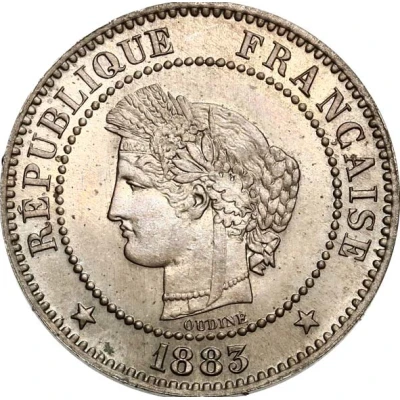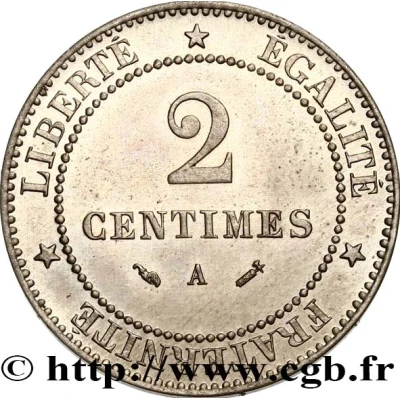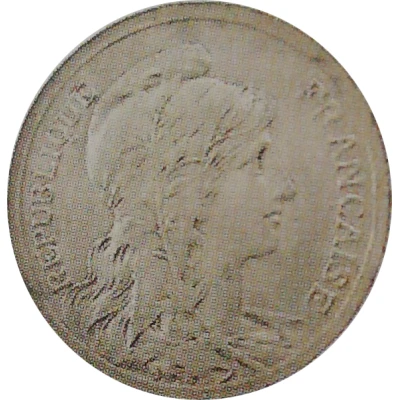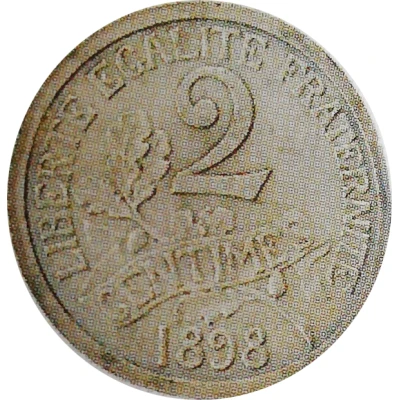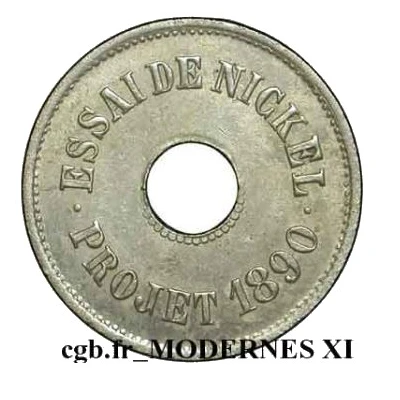
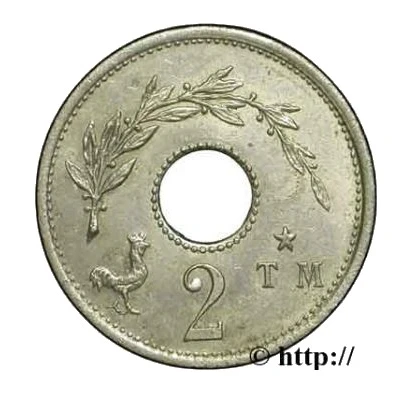

© CGB
Essai de 2 centimes en nickel
1890 year| Nickel silver | 2.23 g | 20 mm |
| Issuer | France |
|---|---|
| Period | Third Republic (1870-1940) |
| Type | Pattern |
| Year | 1890 |
| Value | 2 Centimes (0.02) |
| Currency | Franc (1795-1959) |
| Composition | Nickel silver |
| Weight | 2.23 g |
| Diameter | 20 mm |
| Shape | Round with a round hole |
| Technique | Milled |
| Orientation | Medal alignment ↑↑ |
| Demonetized | Yes |
| Updated | 2024-10-04 |
| Numista | N#169009 |
|---|---|
| Rarity index | 95% |
Reverse
In the center, round perforated in a grenetis; branch above, rooster below.
Script: Latin
Lettering: 2 TM
Edge
Plain
Comment
Mazard states "the tests marked with the initials T. M. are due to the private initiative of T. Michelin" and quotes an article from the Figaro of February 23, 1896 "He's an amiable old man of eighty-five who, for ten years, has been tiring the Government and the newspapers in favor of nickel coinage. He made his fortune in ribbons and, retired to the countryside, has spent 2 or 3,000 francs on various tests and printed matter, for which he does not even ask to be reimbursed. His ambition is purely not to die before endowing his country with a currency in which he sees the salvation of our purse and pockets. He asks nothing for himself. He has no nickel to sell; he has no interest in the Mint. He has a toquade, that's all, a patriotic toquade of which he is very proud."MAZARD Jean, Histoire monétaire et numismatique contemporaine (Maz#)
Interesting fact
The Pattern Essai de 2 centimes en nickel 1890 from France was designed by French sculptor and engraver, Oscar Roty. Roty was known for his work on various French coins and medals, and his designs often featured intricate details and ornate patterns. The 2 centime coin he designed in 1890 was no exception, featuring a beautiful depiction of a woman representing the French Republic on the obverse side, and a wreath of laurel leaves on the reverse side. The coin's design was meant to symbolize the values of the French Republic, such as liberty, equality, and fraternity.
